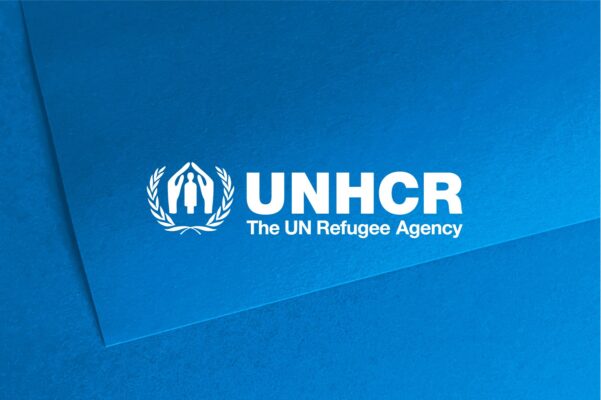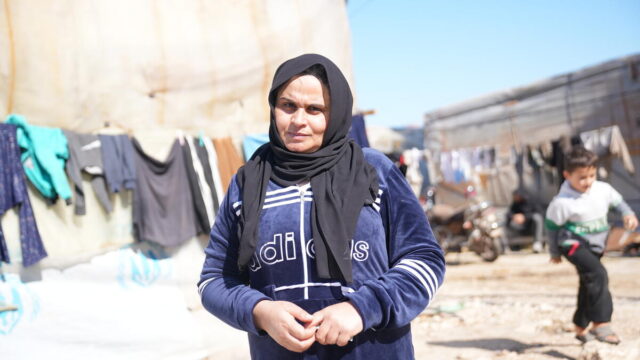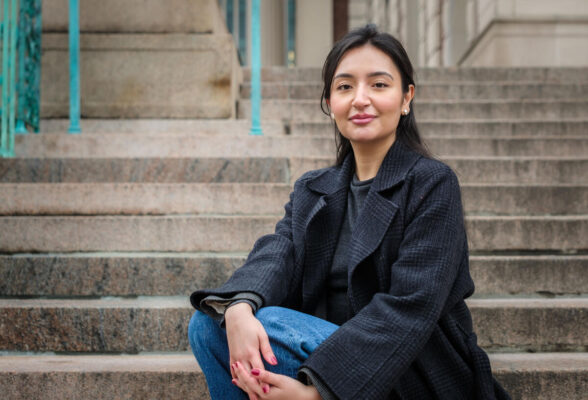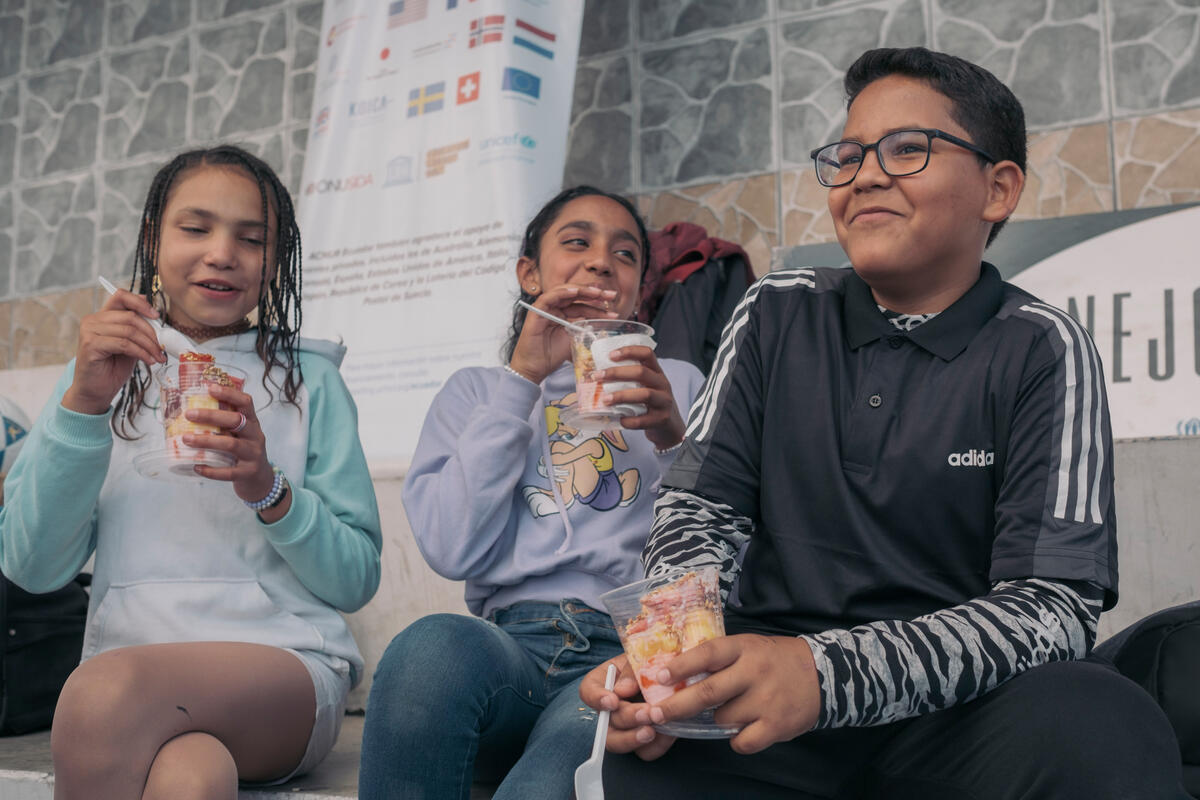
Ernesto*, 11, from Venezuela enjoys a snack with friends during an afterschool session for refugee and local kids in Otavalo, Ecuador. © UNHCR/Jeoffrey Guillemard
For displaced young people like Gloria* and Ernesto* from Venezuela, access to school – a welcome sanctuary from their daily struggles – is threatened by a recent surge in criminal violence.
By Diana Díaz and Ilaria Rapido in Guayaquil, Ecuador
Gloria Fernández*, 18, jiggled her leg impatiently as she waited her turn to use the cell phone she shares with her two siblings to finish her schoolwork. It was 10 p.m. and she still had an important assignment to submit before graduation.
“We have to rotate so each of us has a turn for all our assignments. We can stay up till 11 p.m. doing our homework now,” said Gloria, who was displaced from Venezuela two years ago with her family, and now lives in Guayaquil, a port city in southern Ecuador.
Gloria and her siblings were studying remotely, but unlike in 2020 when COVID-19 was the reason, the recent school closure was due to increased violence and the declaration of an internal armed conflict in Ecuador earlier this year to combat rampant criminality. Gloria and her classmates were afraid they would not be able to gather for graduation in early March.
“It’s hard for them to stay indoors, but I am thankful they are home and safe,” said Gertrudis Osorio*, Gloria’s mother. She described waiting for her children to make the one-hour walk home from school before classes were suspended, and how minutes would feel like hours as she prayed nothing had happened to them.
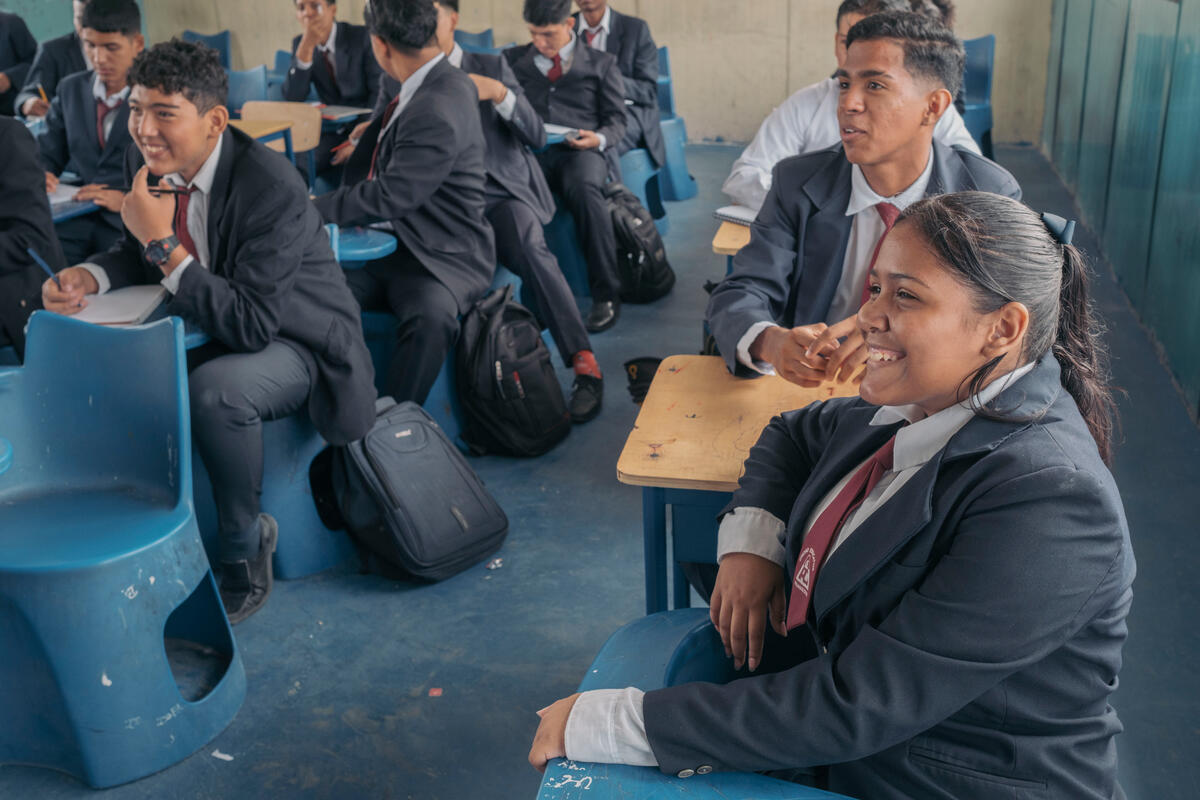
Gloria Fernández* (bottom right), 18, attends lessons in Guayaquil, Ecuador, in late 2023 before her school was temporarily closed due to rampant criminal violence that swept the country earlier this year. © UNHCR/Jeoffrey Guillemard
“When we came from Venezuela two years ago, we never thought things would be like this here. Now we juggle between fear of something happening to us and trying to make ends meet so we can give our children a better future,” Gertrudis added.
Rampant violence
Ecuador has experienced an upsurge in violence in recent years, largely fuelled by disputes between criminal groups across the country. Violence has become commonplace in many communities, including those hosting the more than half a million refugees and migrants in Ecuador.
According to a 2023 assessment conducted by UNHCR, the UN Refugee Agency, refugees and migrants are increasingly afraid, particularly of the violence affecting young girls and boys. Many have opted to stay home, stop working or avoid sending their children to school, while others are considering moving to places they consider safer. In the past year, the number of Venezuelan children enrolled in schools in Ecuador has halved, mainly due to relocation within or outside the country for several reasons, including violence.
The displacement of Ecuadorians has also increased sharply, with over 57,000 crossing the Darien jungle in 2023 alone and a total of 46,000 Ecuadorian asylum-seekers worldwide. Three out of four Ecuadorians interviewed by UNHCR in Panama after crossing the Darien cited violence and insecurity as their reason for leaving the country.
Now, an entire generation of young people fear for their futures and mental health, while families face increasing financial and social pressures because of the violence.
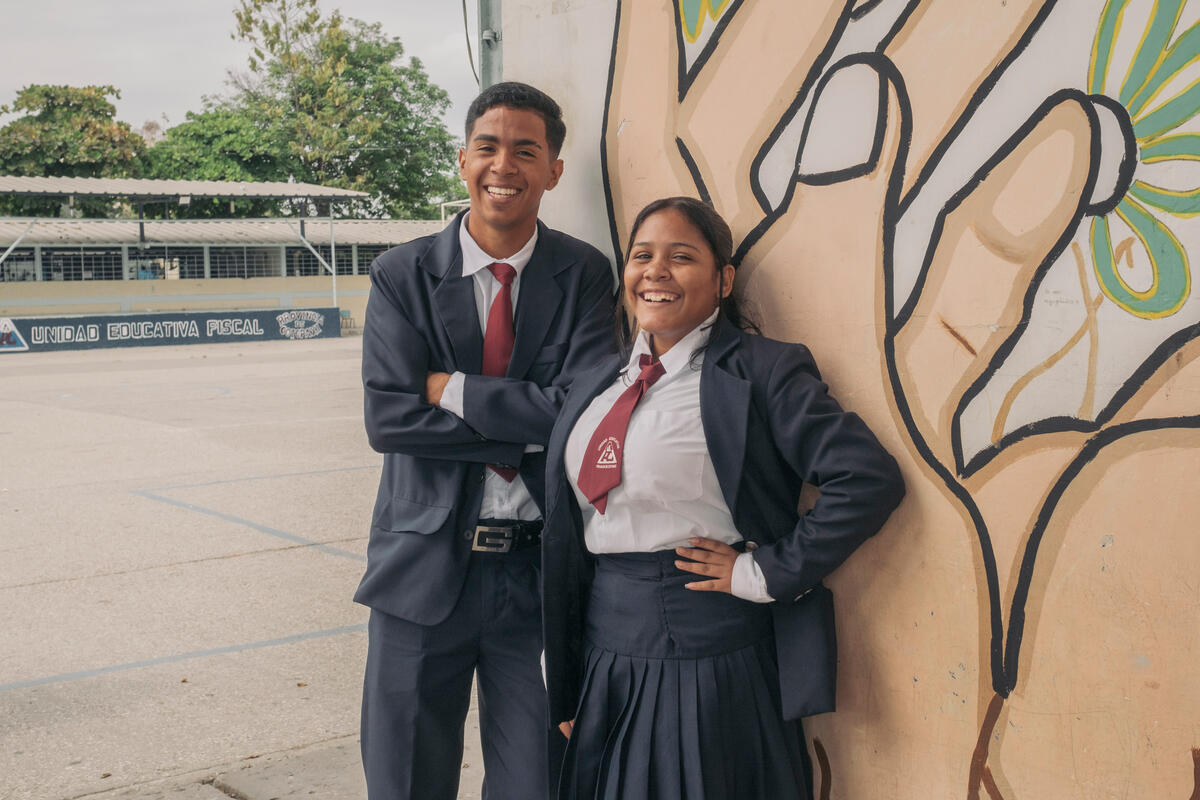
Gloria has made many friends since moving to Ecuador from Venezuela in 2022, including Emanuel, 17, an Ecuadorian student and aspiring lawyer. © UNHCR/Jeoffrey Guillemard
“There is a lot happening outside and I [was] often afraid walking to and from school, especially when we finished late,” said Gloria. “But what has really made a difference for me is the support I’ve found here and the friendships I have been able to make in school in the past two years.”
For displaced young people like Gloria, school became a place to build a network where she felt welcome and safe, despite the violence in the streets outside. “One time, my classmates asked me about our situation, how I couldn’t afford bus fees or school supplies, and all of a sudden they collected money and supplies for me,” she recalled with a smile.
Tackling discrimination
Although Ecuador has a generous policy enabling children of all nationalities to attend school, the lack of resources for school supplies and uniforms, as well as discrimination and xenophobia, pose additional barriers for them to integrate, flourish and finish their education.
UNHCR and partners work directly with communities and schools across the country to assist families most in need. One approach – carried out in over 250 schools since 2019 – is called Breathing Inclusion (Respiramos Inclusión in Spanish). It encourages children and teachers to explore concepts of identity, diversity, justice, and social change to help combat prejudice and discrimination. It also tackles xenophobia through games and community activities.
“Going to school is not just the academic part. It’s a place where children interact with peers and find their place in society,” explained Ismenia Íñiguez, UNHCR’s Senior Education Assistant in Ecuador. “Investing in the education of refugee and local children translates to an investment in the communities where they both live. In the end, it means the protection circle around children expands further.”
In places like Otavalo, an Andean town in Ecuador’s northern province of Imbabura, UNHCR and partners complement this methodology with Community Champions, an afterschool programme where refugee and Ecuadorian children meet to learn about sports, reinforce soft skills, and find a safe space away from the violence lurking in their neighbourhoods. For young Venezuelan boys like 11-year-old Ernesto Suárez* and his siblings, it has made a big difference.
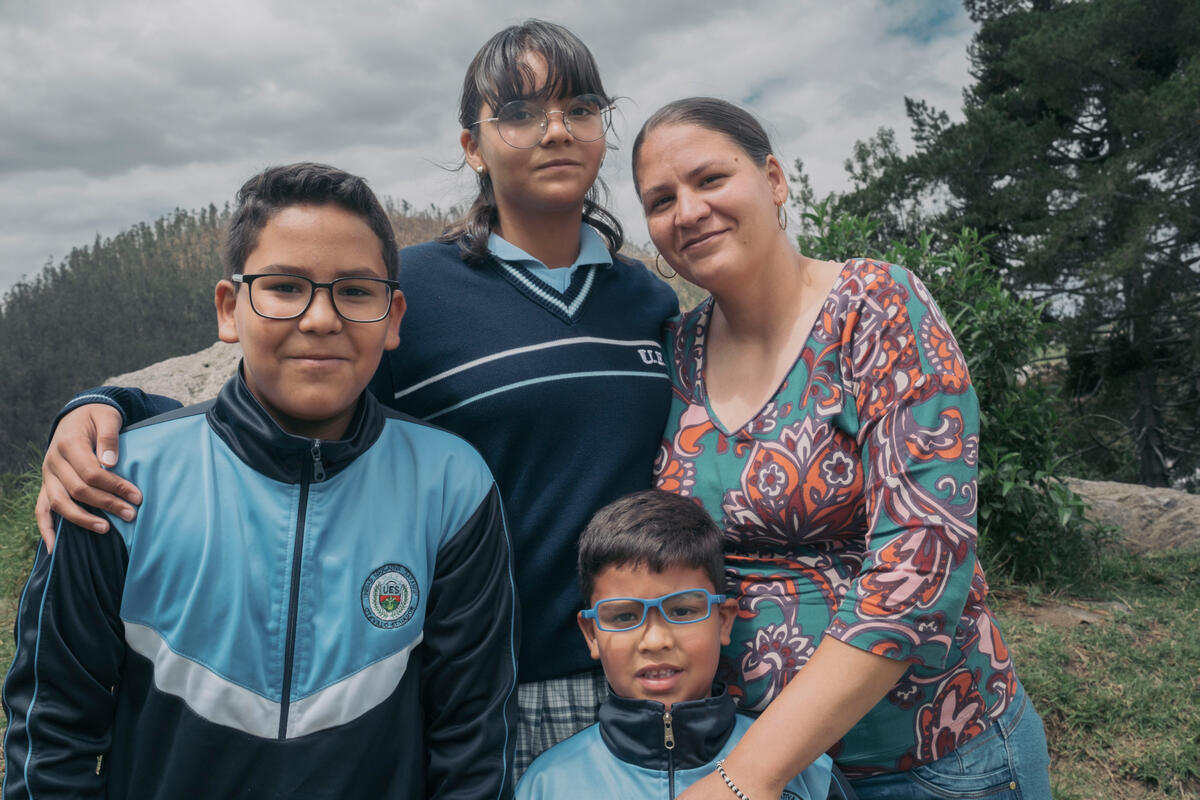
Ernesto (left) and his siblings head home with their mother after school. © UNHCR/Jeoffrey Guillemard
“On my first day, I was very shy, I didn’t play with anyone. But now the whole classroom welcomes me and plays with me,” said Ernesto, who attends one of the schools implementing UNHCR’s Breathing Inclusion methodology.
Fortunately for Gloria and her classmates, schools reopened in early March, allowing them to attend their graduation in person. Now she is thinking about how to turn her experiences to positive use in the future.
“I dream of going to university and becoming a psychologist, to help other children like me find a safe place in school.”
*Names changed for protection reasons.
Originally published by UNHCR March 20, 2024.
